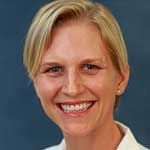If you’re interested in bringing much needed eye care to communities around the globe, a number of ophthalmology training fellowships are now available across the U.S. In fact, global ophthalmology is a fast-growing practice area that is quickly becoming its own field of expertise.
Over the last eight years, global fellowship programs have grown from one to eight with a focus on collaboration and shared education. Similar to other ophthalmology fellowships, each global ophthalmology fellowship is unique and has its own areas of focus and goals.
Although each program offers a different training experience, all aim to provide their fellows with an improved knowledge base and a skillset better adapted to delivering care in low-resource settings.
There are currently seven active one-year academic global ophthalmology fellowship programs in the United States. The first fellowship program launched at the Moran Eye Center in partnership with the Himalayan Cataract Project under the leadership of Geoff Tabin, MD. This fellowship was initiated with the vision to aid young ophthalmologists eager to improve global eye care delivery by creating global partnerships focused on sustainable projects. One global ophthalmology training program is based at the Seva Foundation.
U.S.-Based Global Ophthalmology Fellowship Programs
On an individual and institution level, global partnerships are a key component of these fellowships. The global health work, whether research or clinical, thrives on effective collaborations.
Multinational Partnerships
Being a global health physician means one should create and sustain simultaneous partnerships with academic institutions, charitable organizations and governmental and nongovernmental organizations.
As a global ophthalmology fellow, you will likely work on educational, research and community outreach initiatives with local or international collaborators. For example, some fellows have collaborated with institutions to organize and carry out a board examination review course for residents in Ethiopia. Fellows may also be involved in local residents’ clinical and surgical training.
Working in a different environment comes with its own unique challenges, and some programs facilitate multiple rotations in different parts of the world throughout the year. During this time, the fellows learn how to optimize and manage limited resources while effectively teaching residents and learning from local experts.
As a global ophthalmology fellow, you will gain the knowledge and experience to work with international partners and learn the ins and outs of eye care delivery in settings with low or no resources.
Managing Low Resources
You’ll gain surgical and clinical skills imperative to this work and often not found in U.S.-based residency programs. You will learn small incision cataract surgery (SICS) and encounter eye diseases such as trachoma, which is uncommon in the U.S. Many programs will arrange for fellows to spend part of their year in an international partnering institution like LV Prasad to undergo training on SICS, trichiasis surgery and more.
This opportunity also enriches the fellow’s surgical skillset so he/she can approach complex patients with a safe, economic and effective surgical management option best suited for low-resource settings.
It is a common misconception that global health work is limited to work that can only be done with a passport. In fact, all of the principles learned abroad to address eye care inequity can be applied to underserved communities in the U.S. where the unmet need for eye care is great. With the COVID-19 pandemic restricting travel abroad, many fellows have become involved in telemedicine projects and local outreach initiatives addressing sparse eye care access and distribution of providers to marginalized communities in the U.S..
Many programs are flexible in ways that can facilitate learning experiences most aligned with the fellow’s career interests. Since a career in global ophthalmology is a relatively novel concept compared to other subspecialties, career mentorship and leadership development become important objectives of the fellowship experience.
Fellows acquire a vast global network of mentors and partners and gain the autonomy to lead and collaborate with global health leaders around the world. The skills acquired during your fellowship will challenge you to think differently and will make you a better physician regardless of where your career takes you.
Global ophthalmology fellowship programs have developed a unique and collaborative approach to education with a shared fellowship retreat, monthly journal clubs and collaboration on global initiatives. As a global ophthalmology fellow, you will join a tight-knit community dedicated to the prevention of blindness.
About the authors:
 |
Duaa Sharfi, MD, is a global ophthalmology fellow at the Emory Eye Center. She did her residency at the New York Eye and Ear Infirmary of Mount Sinai. |
 |
Cristos Ifantides, MD, MBA, is the director for ophthalmic global outreach at the University of Colorado. He did his residency training at the Mount Sinai Hospital in New York followed by a global ophthalmology fellowship at the Wills Eye Hospital. He joined the Academy’s YO International Subcommittee in 2020. |
 |
Jacquelyn O’Banion, MD, is an assistant professor of ophthalmology at Emory University School of Medicine and serves as director of global ophthalmology, fellowship director for global ophthalmology and chair of the Diversity, Equity and Inclusion Committee. She is a comprehensive ophthalmologist and joined the Academy’s YO International subcommittee in 2020. |